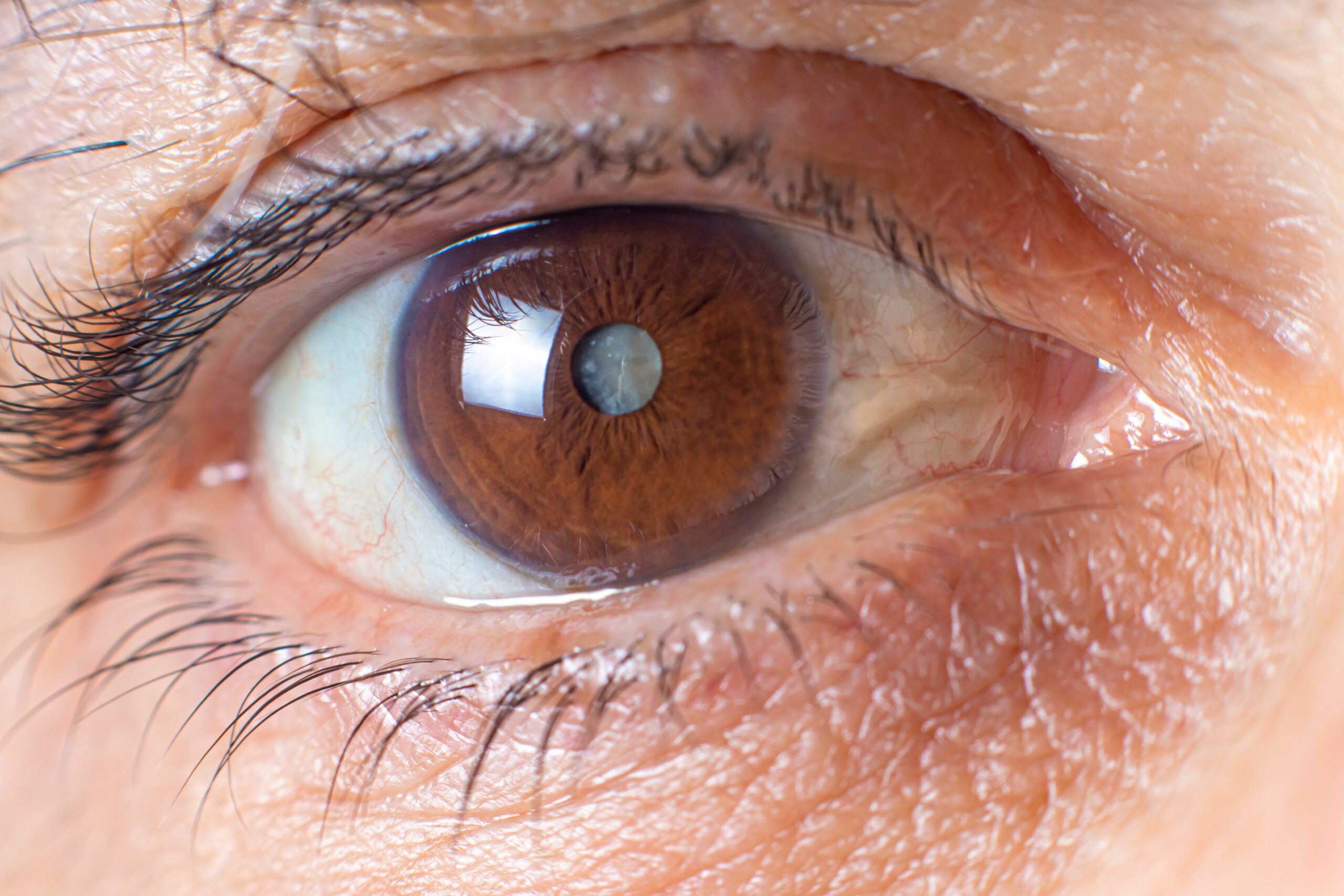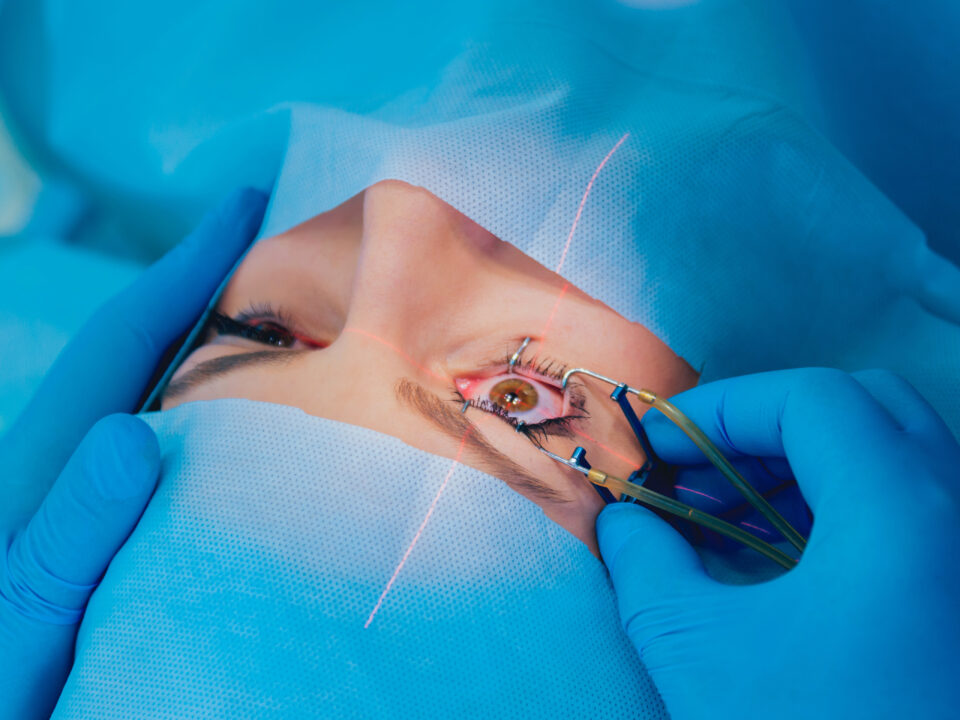Sign and Symptoms of Cataract Eye: Guide for Early Detection
- What Are Cataracts?
- Early Symptoms of Cataracts in the Eye
- Advanced Symptoms to Watch Out For
- Risk Factors for Developing Cataracts
- When to See an Eye Doctor
- Prevention & Eye Health Tips
- Cataract Diagnosis
- Cataract Treatment Options
- Frequently Asked Questions About Cataracts
- Dr. Gourav Mangla
- MBBS, MS, DNB(eye), FVR
Cataracts are one of the most common vision problems, especially in people over 40, and can gradually cloud your eyesight over time. They occur when the clear lens of the eye becomes cloudy, making everyday tasks like reading, driving at night, or recognising faces more difficult—almost like looking through a fogged-up window. While the early signs of cataract may seem subtle, such as mild blurriness or glare, recognising them early is key to protecting your vision.
What Are Cataracts?
A cataract is a condition where the eye’s natural lens becomes cloudy, making it harder to see clearly. This cloudiness happens when proteins in the lens break down over time, causing your vision to become blurry, hazy, or less colourful. Normally, the lens is clear and works like a camera lens—bending (refracting) light rays so you can see sharp, focused images. But with a cataract, it’s like looking through a foggy or dusty windshield, making everything appear unclear.
In Punjabi, cataract is often called ਮੋਤੀਆਬਿੰਦ (Motiyabind) or simply ਮੋਤੀਆ (Motia)—both describing this cloudy lens condition. People with cataracts may notice difficulty reading, driving at night, or recognizing faces due to this gradual loss of clarity.
If you or a loved one notices symptoms of cataracts in the eye—such as persistent blur, glare, or faded colors—it’s important to consult an experienced specialist. At Vasu Eye Institute and Skin Centre, home to some of the best ophthalmologists in Punjab, we offer advanced cataract eye treatment for patients from Bathinda, Punjab, Haryana, and Rajasthan, helping them restore clear and vibrant vision.
Early Symptoms of Cataracts in the Eye
Cataracts usually develop slowly, so the signs can be easy to miss at first. Many people don’t realise they have a cataract until it starts affecting their daily life. Knowing the early symptoms of cataracts in the eye can help you seek timely treatment and protect your vision.
Common signs of cataract include:
- Blurred or cloudy vision – like looking through frosted glass
- Glare and halos around lights, especially at night
- Fading or yellowing of colors
- Double vision in one eye
- Frequent changes in glasses or contact lens prescription
- Poor night vision or difficulty driving after dark
If you notice any of these signs and symptoms of cataract, don’t ignore them. At Vasu Eye Institute and Skin Centre, Bathinda, our expert team—including some of the best ophthalmologists in Punjab—offers advanced cataract eye treatment options to restore your vision and improve your quality of life.
Advanced Symptoms to Watch Out For
If cataracts are left untreated, they can progress to a stage where vision problems become severe and start affecting everyday activities. At this point, even bright lighting or stronger glasses may not help.
Advanced signs of cataract include:
- Significant vision loss that makes reading, driving, or recognising faces difficult
- Complete cloudiness in the centre of the eye’s lens
- Inability to see well in bright sunlight due to extreme glare sensitivity
- Severe night vision problems, with large halos around lights
- Noticeable white or gray spot in the pupil area
- Colors appearing very dull or yellow
Difficulty performing close-up work like sewing or reading
Risk Factors for Developing Cataracts
While cataracts (ਮੋਤੀਆਬਿੰਦ / Motiyabind) can occur naturally with age, certain factors can increase your chances of developing them earlier or experiencing faster progression. Understanding these risk factors can help you take preventive steps and protect your vision.
Common risk factors include:
- Ageing – The most common cause, especially after the age of 40
- Diabetes – People with uncontrolled blood sugar have a higher risk
- Excessive sun exposure – UV rays can damage the eye’s natural lens
- Long-term steroid use – Certain medications can speed up cataract formation
- Smoking and alcohol consumption – Both can accelerate eye lens damage
- Eye injuries or surgery – Trauma or past eye procedures may lead to cataracts
- Family history – Genetic predisposition increases the likelihood
- Radiation exposure – From cancer treatments or certain work environments
Many people still delay routine eye check-ups, which means signs of cataract often go unnoticed until advanced stages. Our best ophthalmologists in Punjab provide early detection, personalised treatment, and advanced cataract eye treatment options so you can enjoy life with clear vision.
When to See an Eye Doctor
Early detection is the key to successful cataract eye treatment and preventing long-term vision loss. Many people ignore the early symptoms of cataracts in the eye, thinking it’s just normal ageing, but timely consultation can make a big difference.
You should book an appointment with an eye specialist at Vasu Eye Institute and Skin Centre if you experience:
- Persistent blurry or cloudy vision
- Difficulty seeing clearly at night or in low light
- Sensitivity to bright lights or glare
- Frequent changes in your glasses or contact lens prescription
- Faded or yellowed colors
- Double vision in one eye
- Trouble reading, driving, or doing daily tasks due to vision changes
If you live in Bathinda, Punjab, Haryana, or Rajasthan, don’t delay getting a comprehensive eye check-up—especially if you’re over 40, have diabetes, high blood pressure, or a family history of Motiyabind (ਮੋਤੀਆਬਿੰਦ).
Prevention & Eye Health Tips
While some risk factors for Motiyabind (ਮੋਤੀਆਬਿੰਦ) like age or genetics can’t be avoided, healthy lifestyle choices can help delay the onset and slow the progression of cataracts.
Here are some proven tips to protect your vision:
- Schedule regular eye check-ups – Early detection of symptoms of cataracts in the eyes can prevent further vision loss.
- Protect your eyes from UV rays – Wear sunglasses that block 100% of UVA and UVB rays when outdoors.
- Limit screen time – Excessive use of mobile phones, computers, and TVs can cause eye strain and worsen other vision problems.
- Eat an eye-healthy diet – Include foods rich in Vitamin C, Vitamin E, lutein, and omega-3 fatty acids for better eye health.
- Control systemic conditions – Manage diabetes, high blood pressure, and other health issues that increase the risk of signs of cataract.
- Avoid smoking & excessive alcohol – These habits can accelerate lens damage.
- Maintain proper lighting indoors – Good lighting reduces strain while reading or working.
At Vasu Eye Institute, Bathinda, we focus not just on cataract eye treatment, but also on guiding our patients to maintain long-term eye health so they can enjoy clear vision for years to come.
Cataract Diagnosis
At Vasu Eye Institute and Skin Centre, Bathinda, our expert ophthalmologists use advanced diagnostic tools to accurately detect Motiyabind (ਮੋਤੀਆਬਿੰਦ) and determine the right cataract eye treatment for you. Early detection is key to preventing further vision loss and maintaining a high quality of life.
Here’s what your cataract diagnosis may involve:
- Comprehensive Eye Examination with Dilation
- We use special eye drops to widen your pupils, allowing the doctor to get a clear view inside your eye and detect even early symptoms of cataracts in the eyes.
- We use special eye drops to widen your pupils, allowing the doctor to get a clear view inside your eye and detect even early symptoms of cataracts in the eyes.
- Slit-Lamp Examination
- This high-magnification microscope allows our ophthalmologists to closely inspect your cornea, iris, lens, and other front structures of the eye to identify signs of cataract and other abnormalities.
- This high-magnification microscope allows our ophthalmologists to closely inspect your cornea, iris, lens, and other front structures of the eye to identify signs of cataract and other abnormalities.
- Retinal Examination
- With dilated pupils, we carefully examine the retina, optic nerve, and internal eye structures. This helps us not only confirm Motiya but also check for other conditions like glaucoma or diabetic eye disease.
- With dilated pupils, we carefully examine the retina, optic nerve, and internal eye structures. This helps us not only confirm Motiya but also check for other conditions like glaucoma or diabetic eye disease.
- Refraction & Visual Acuity Tests
- These tests measure the sharpness and clarity of your vision. Each eye is tested separately using letters of different sizes to assess the impact of cataracts on your eyesight.
- These tests measure the sharpness and clarity of your vision. Each eye is tested separately using letters of different sizes to assess the impact of cataracts on your eyesight.
By combining these advanced diagnostic techniques, Vasu Eye Institute ensures a thorough evaluation so that your treatment plan is tailored to your needs—whether that’s monitoring the condition or moving forward with surgery.
Cataract Treatment Options
At Vasu Eye Institute and Skin Centre, Bathinda, we offer advanced and personalised cataract eye treatment for patients across Punjab, Haryana, and Rajasthan. While no medication or eye drop can reverse cataracts, the right approach depends on how advanced your condition is.
1. Early-Stage Management
If cataracts are detected early, surgery may not be needed immediately. You may benefit from:
- Updated prescription glasses for clearer vision.
- Brighter lighting at home and work.
- Anti-glare coated glasses for night driving.
- Magnifying aids for reading.
Regular monitoring with our top ophthalmologists in Punjab enables us to intervene at the right time.
2.When Surgery Becomes Necessary
If symptoms of cataracts in the eye start interfering with daily life — such as difficulty driving, reading, or recognising faces — surgery is the only definitive solution. Cataract surgery is safe, quick, and highly effective, with success rates above 95%.
Types of Cataract Surgery We Offer:
a. Phacoemulsification (Small-Incision Surgery)
- Most common and minimally invasive technique.
- A tiny incision is made on the cornea.
- Ultrasound waves break up the cloudy lens, which is then replaced with a clear intraocular lens (IOL).
- Faster healing and minimal discomfort.
b. Femtosecond Laser-Assisted Cataract Surgery
- Uses precision laser technology to break up the cloudy lens.
- Ideal for patients with cataracts and astigmatism — laser reshaping of the cornea can correct both in one procedure.
c. Extracapsular Cataract Extraction (ECCE)
- Recommended for very advanced or large cataracts.
- Cloudy lens removed in one piece, replaced with an artificial lens.
- Longer recovery period compared to phacoemulsification.
3. Recovery After Surgery
- Most patients notice improved vision within a few days.
- Complete healing usually takes 1–2 weeks.
- We provide personalised post-operative care to ensure optimal recovery.
4. Possible Complications (Rare)
While cataract surgery is safe, rare risks include infection, bleeding, retinal detachment, or posterior capsule opacification (PCO). PCO can be corrected with a quick, painless YAG laser treatment.
At Vasu Eye Institute and Skin Centre, our goal is to restore clear vision and improve your quality of life using the safest, most advanced techniques available.
Conclusion
Cataracts may be a common age-related condition, but with early detection and the right treatment, you can protect your vision and continue living life with clarity. If you are experiencing symptoms of cataracts in the eye such as blurry vision, glare, or faded colors, it’s important to get your eyes examined by an experienced specialist. At Vasu Eye Institute and Skin Centre, Bathinda, we combine advanced diagnostic tools, modern surgical techniques, and compassionate care to deliver the best outcomes for our patients across Punjab, Haryana, and Rajasthan. Don’t let cataracts cloud your future — book your consultation today and take the first step toward clear, healthy vision.
📞 Call us at +91 9501443977 to schedule your appointment.
Frequently Asked Questions About Cataracts
No, cataracts do not go away on their own. Once the eye’s natural lens becomes cloudy, it cannot clear up without medical treatment. In the early stages, vision changes may be managed with stronger glasses or better lighting, but the only permanent solution is cataract surgery.
While cataracts cannot be completely prevented, you can lower your risk by protecting your eyes from UV rays, controlling diabetes, avoiding smoking, and maintaining a healthy diet rich in antioxidants. Regular eye check-ups also help in early detection.
Adults should have a complete eye examination every 2 years after the age of 40. However, if you have risk factors like diabetes, high blood pressure, or a family history of cataracts, it’s best to get screened every year.
The speed of cataract progression varies from person to person. In most cases, they develop slowly over several years. However, certain conditions like uncontrolled diabetes or eye injury can cause faster progression.
The most common cause is natural aging of the eye’s lens. Other causes include prolonged UV exposure, diabetes, smoking, certain medications like steroids, and previous eye injuries or surgeries.
The only way to remove cataracts is through cataract surgery, where the cloudy lens is replaced with an artificial intraocular lens (IOL). It’s a safe, quick, and highly effective procedure performed by an experienced ophthalmologist.
If left untreated, cataracts can significantly affect daily activities like reading, driving, or recognising faces. In advanced cases, they can lead to severe vision loss or blindness.
While you can’t fully prevent them, you can reduce the risk by:
- Wearing sunglasses with UV protection
- Eating a diet rich in vitamins C & E
- Avoiding smoking and excessive alcohol
- Managing health conditions like diabetes
Having regular eye check-ups
Cataracts can develop at any age, but they are most common in people over 60 years. However, they can also occur earlier due to injury, medical conditions, or genetic factors.
No, cataract surgery is not painful. The procedure is performed under local anesthesia, so you’ll be awake but won’t feel discomfort. Most patients experience clear vision within days after surgery.
📞 For expert cataract diagnosis and treatment in Bathinda, Punjab, Haryana, and Rajasthan, contact Vasu Eye Institute and Skin Centre at +91 9501443977.








